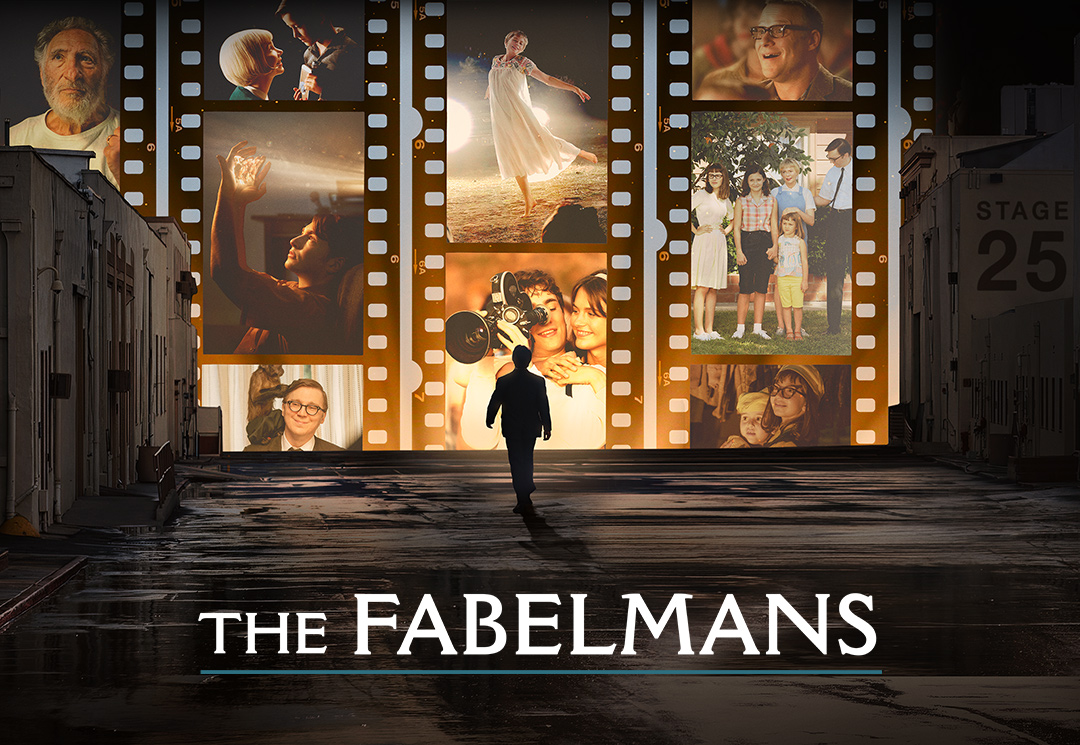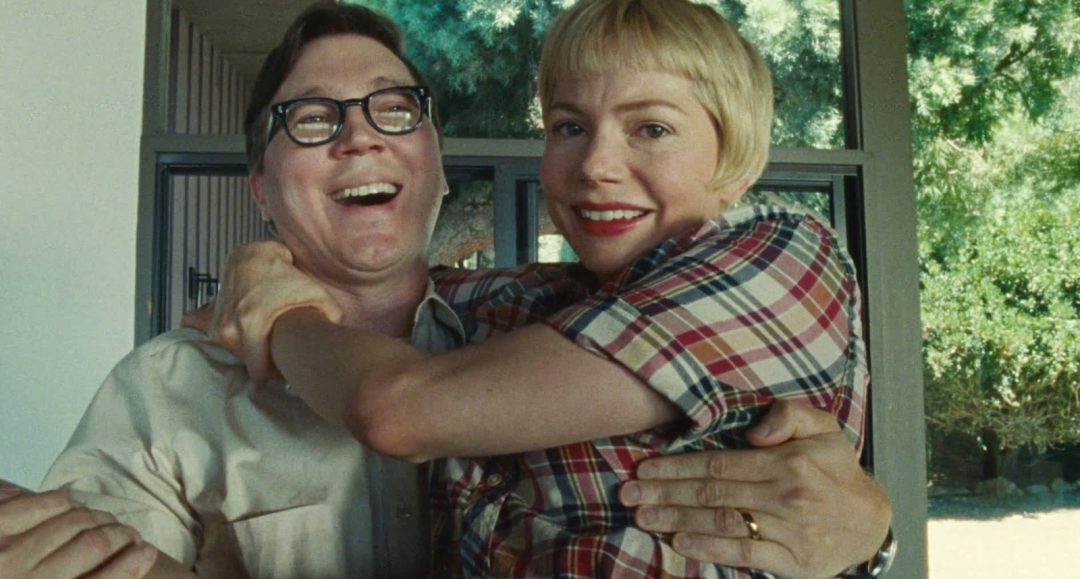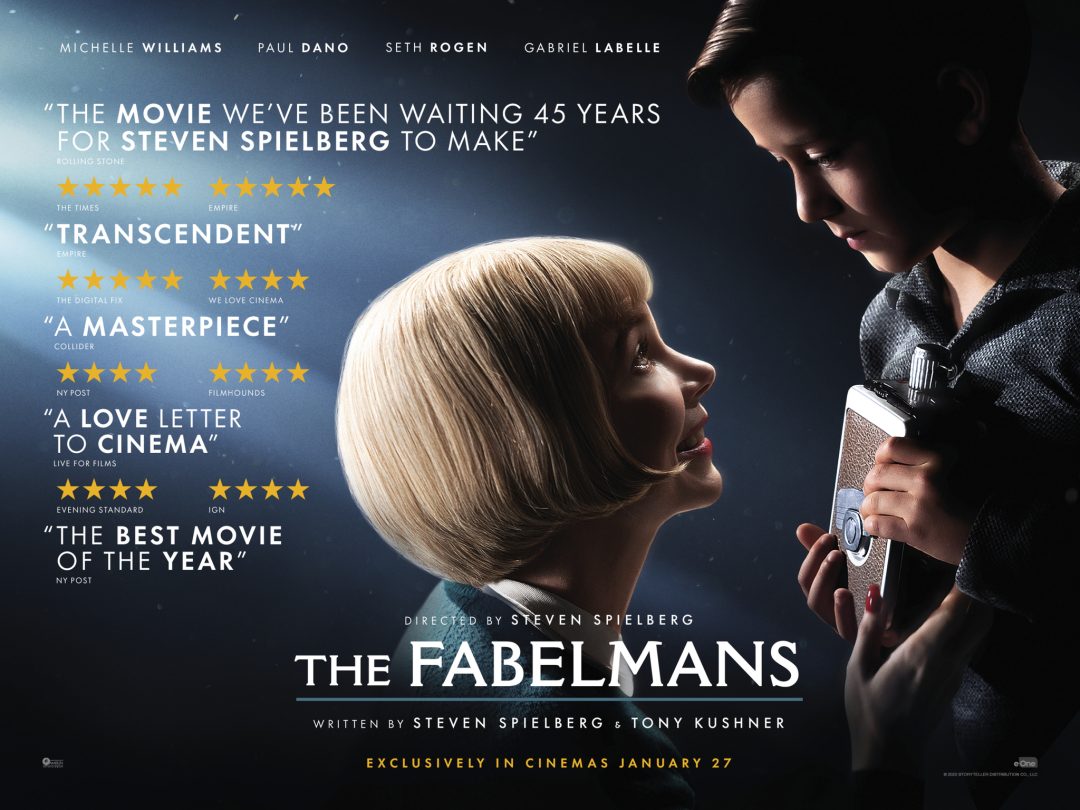Discover our review of The Fabelmans (2022), Steven Spielberg’s semi-autobiographical drama. Learn about the film’s heartfelt storytelling, powerful performances, and exploration of family and creativity.

The Fabelmans (2022), directed by Steven Spielberg, is a semi-autobiographical film that takes a deep dive into the early life of a young filmmaker. Sammy Fabelman, portrayed by Gabriel LaBelle, embarks on a coming-of-age journey where his passion for filmmaking becomes both a refuge and a lens through which he understands the complexities of his family. The film, set against the backdrop of 1950s and 60s America, showcases Spielberg’s childhood and the intricacies of his family dynamics.
The movie is a nostalgic and emotional journey into the power of creativity, family bonds, and self-discovery. It balances humor and poignant moments with a grounded narrative, making it a standout in Spielberg’s storied career. Let’s take a closer look at the elements that make The Fabelmans a powerful and moving film.
Story and Themes
At its heart, The Fabelmans is a story of self-discovery through the lens of a camera. Sammy Fabelman’s passion for filmmaking begins as a way to escape the turmoil in his home life, but it soon becomes a tool for understanding the world around him. Spielberg uses his personal history to craft a coming-of-age story that transcends the usual biographical elements, touching on universal themes of creativity, family struggles, and personal growth.
The Coming-of-Age Journey
Sammy’s love for film begins at a young age, and it is through this medium that he begins to navigate his emotions and relationships. The film showcases how film becomes both a lens for understanding his family and a personal refuge for Sammy as he faces the difficult realities of growing up. His evolving relationship with his parents—especially his mother—becomes the central emotional thread of the film.
The journey Sammy takes is one of both internal and external growth, where the complexities of his family life and his burgeoning filmmaking skills intersect. As Sammy matures, he learns the power of storytelling, not just for others, but for himself. The Fabelmans is ultimately about finding one’s place in the world while understanding the deep-rooted connections to the people who shape us.
Family Dynamics and Complex Relationships
The dynamic between Sammy and his family is at the heart of the film. Mitzi, Sammy’s mother, played by Michelle Williams, is a free-spirited and emotionally complex character who has a profound influence on his creative development. However, their relationship is also marked by tension, particularly as Sammy begins to realize that his mother’s actions have deeper emotional consequences on their family.
The film explores the emotional complexities of family life—the sacrifices, misunderstandings, and unresolved tensions that shape us. Sammy’s relationship with his father, Burt (Paul Dano), also plays a significant role. Burt is practical and loving, but his relationship with Mitzi creates a rift that Sammy must navigate, especially as he grows older and understands the fragility of the family unit.

Performances in The Fabelmans (2022)
The performances in The Fabelmans are key to its emotional impact. The cast, led by Gabriel LaBelle, Michelle Williams, and Paul Dano, brings a rich emotional depth to their roles. The chemistry between the actors grounds the film, allowing the personal stakes of Sammy’s journey to resonate.
Gabriel LaBelle as Sammy
Gabriel LaBelle portrays the young Sammy with a perfect mix of innocence, curiosity, and emotional complexity. As Sammy begins to navigate the complexities of growing up and filmmaking, LaBelle’s performance shines. He successfully captures Sammy’s internal conflict, his passion for filmmaking, and his emotional turmoil as he tries to understand his place in the world. LaBelle’s portrayal allows audiences to connect with the character on a deeply emotional level, making his coming-of-age journey relatable and impactful.
Michelle Williams as Mitzi
Michelle Williams’ portrayal of Mitzi, Sammy’s mother, is one of the film’s most compelling performances. Mitzi is both a source of inspiration and tension for Sammy, and Williams navigates her character’s emotional depth with grace. Mitzi’s free-spirited nature is juxtaposed with her personal struggles, and Williams captures the complexities of her character with subtlety and strength.
Mitzi’s relationship with Sammy forms the emotional backbone of the film. Her portrayal is a delicate balance of love and uncertainty, and Williams’ performance elevates the film, making it resonate deeply with audiences.
Paul Dano as Burt
Paul Dano plays Burt, Sammy’s father, with a quiet but powerful presence. Burt is practical, grounded, and full of love for his family, yet his relationship with Mitzi becomes a source of tension throughout the film. Dano’s performance is understated but deeply moving, capturing the complexity of a father who loves his family but is caught in the throes of personal and marital conflict. His character provides a sense of stability amidst the emotional turmoil of the story.

Stay tuned for the second half of this review, where we’ll discuss Spielberg’s direction, the film’s pacing and style, and some criticisms of the third act.
For more insights on Spielberg’s work, be sure to check out our Spielberg Filmography Review and Top Biographical Films.
Spielberg’s Direction and Style
Steven Spielberg’s direction in The Fabelmans is a masterclass in restrained, heartfelt storytelling. Known for his dynamic visuals and flair, Spielberg takes a more subdued approach here, allowing the emotional depth of the story to unfold at its own pace. The film is intentionally slower, focusing more on intimate moments than grand spectacle, which may not appeal to every viewer but feels entirely appropriate for the material.
Sincerity and Restraint in Direction
Spielberg’s decision to take a more reserved approach with The Fabelmans reflects his deep connection to the story. The film is grounded in the real, everyday struggles of growing up and understanding one’s place in the world. Spielberg doesn’t rely on flashy effects or big dramatic moments, instead opting for sincerity and emotional authenticity. This creates a more intimate atmosphere, allowing audiences to connect with the characters on a personal level.
The film’s pacing is deliberate, giving each moment room to breathe. Spielberg’s ability to balance the tone with moments of humor, tenderness, and heartache is what makes this film stand out. It’s a departure from some of his more commercially successful works, showing a more introspective and mature side to his filmmaking.
The Film’s Pacing and Narrative
While the film’s pacing is slower than what some might expect from a Spielberg film, it aligns perfectly with the introspective nature of the story. The deliberate pacing allows the audience to experience Sammy’s emotional growth and the slow unraveling of family dynamics. However, some critics have noted that the film occasionally lingers too long on certain scenes, particularly in the third act, which can feel a bit drawn-out.
The slower narrative is not necessarily a weakness; it’s just a different style that demands patience from the audience. It’s a testament to Spielberg’s maturity as a director that he doesn’t rush the story, allowing it to develop at its own natural pace. This creates a sense of intimacy, though it might feel slow for those accustomed to faster-paced films.
Criticisms and Weaknesses
Despite being widely praised, The Fabelmans isn’t without its flaws. Some critics have pointed out the film’s predictable elements, particularly in the third act, and noted that it doesn’t reach the emotional heights of Spielberg’s greatest works. While the film is heartfelt and moving, it also has moments that feel a bit too clichéd or formulaic.
Occasional Slowness and Predictability
One of the common criticisms of The Fabelmans is its predictability. While the emotional beats of the film are compelling, some of the plot points and character arcs feel familiar. This predictability doesn’t necessarily diminish the impact of the story, but it may leave certain viewers wanting more surprises or twists.
The film follows a relatively standard coming-of-age trajectory, with some moments that feel like they’ve been seen before in other biographical dramas. While this is understandable given the nature of the story, it may be seen as a missed opportunity for more innovative storytelling.
Minor Critiques on Performance and Detail
A minor but noticeable critique comes from the distracting brown contact lenses worn by Gabriel LaBelle, which some viewers found jarring. While it’s a small detail, it detracted from an otherwise strong performance, particularly in a film so focused on emotional realism. Though the performance itself is impressive, the detail was noticeable enough for some critics to point it out.
Additionally, the lack of a more defined narrative arc in the third act, while emotionally resonant, may feel rushed compared to the more deliberate pacing of the earlier parts of the film. Some of the emotional payoff that could have come from these developments feels somewhat shallow, making the ending less impactful than it could have been.
Overall Impressions: A Heartfelt Tribute to Filmmaking
Overall, The Fabelmans is a deeply moving and introspective film that serves as a tribute to Spielberg’s origins as a filmmaker. While it may not be his most groundbreaking work, it is a deeply personal and authentic story that resonates with anyone who has pursued their passions amidst personal struggles. The film strikes the right balance between family drama, creative growth, and self-discovery, making it a fitting addition to Spielberg’s impressive career.
A Charmingly Personal Film
The Fabelmans offers a glimpse into the formative years of one of cinema’s greatest directors, blending personal history with universal themes. The film’s charm lies in its ability to relate to a wide audience, regardless of their background. It’s about finding one’s voice, the importance of family, and the power of storytelling to make sense of the world.
The film may not have the spectacle or grandiosity of Spielberg’s earlier works like E.T. or Schindler’s List, but its warmth and sincerity make it stand out. It’s a quieter film, yet one that will leave a lasting impact on its viewers, particularly those who have an interest in filmmaking or family drama.
Spielberg’s Heartfelt Storytelling
Spielberg’s ability to craft emotionally rich, authentic stories remains unmatched. The Fabelmans shows that even after decades in the industry, Spielberg is still capable of telling deeply personal, resonant stories that speak to universal themes. The film’s intimate portrayal of his early life and the relationships that shaped him is both universal and specific, making it a compelling watch for both fans of Spielberg’s work and those new to his films.
